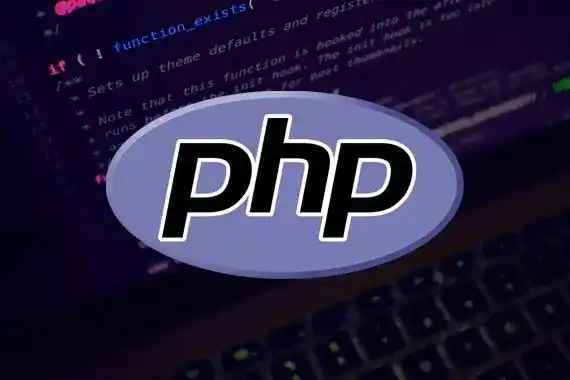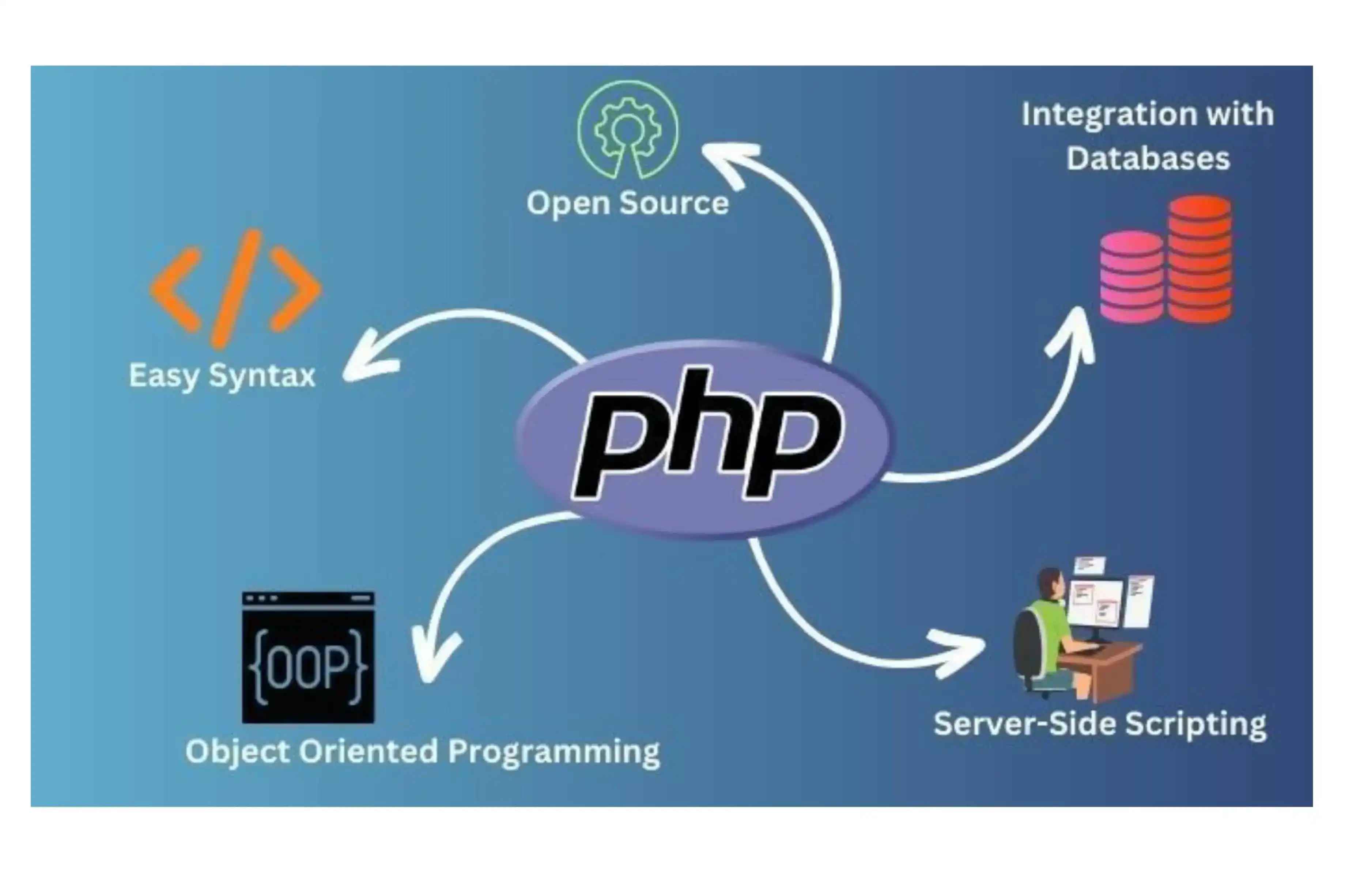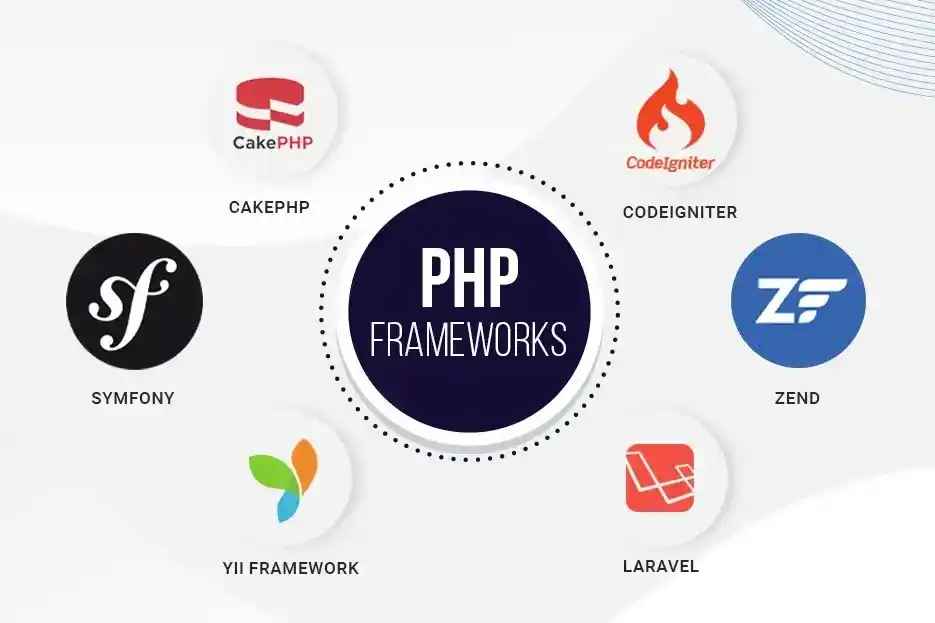What is PHP? A Complete Guide for 2025
Updated on : 22 April, 2025

Image Source: Google
Table Of Contents
- 1. What is PHP? and What Does PHP Mean?
- 2. Is PHP Dying? Market Share
- 3. Major PHP Versions to Date
- 4. What Are the Uses Of PHP?
- 5. Top 5 Practical Applications of PHP
- 6. Advantages of PHP and PHP Features
- 7. Who Uses PHP?
- 8. Popular PHP Frameworks
- 9. How to Write Your First Hello World Program in PHP?
- 10. How Does PHP Work with HTML?
- 11. The Future of PHP Development
- 12. Why Hire PHP Developers From Hexadecimal Software?
- 13. How Hexadecimal Software Can Help You Build With PHP
- 14. FAQs
- 15. Final Thoughts
Table Of Contents
What is PHP? and What Does PHP Mean?
PHP stands for Hypertext Preprocessor, a recursive acronym reflecting its primary purpose: preprocessing hypertext (HTML) to generate dynamic web pages. It is a widely-used open-source server-side scripting language designed specifically for web development but also capable of general-purpose programming. Created by Rasmus Lerdorf in 1994, PHP started as a simple set of Common Gateway Interface (CGI) binaries written in C to track visitors on his personal website. Over time, it evolved into a fully-fledged programming language powering millions of websites worldwide.

Image Source: google
PHP scripts are executed on the server, which means the client (user’s browser) receives only the output (usually HTML), not the PHP source code. This server-side execution model makes PHP ideal for creating dynamic content such as user authentication, form processing, database interactions, and session management. PHP can be embedded directly into HTML code, making it easy for developers to mix static content with dynamic functionality.
Additional Features:
- Supports a wide range of databases including MySQL, PostgreSQL, Oracle, and SQLite.
- Has built-in support for cookies and sessions to maintain stateful information.
- Provides extensive libraries for tasks like file handling, encryption, and image processing.
- Compatible with most web servers, including Apache, Nginx, and Microsoft IIS.

Stuck on a tricky PHP problem? Get expert advice.
Is PHP Dying? Market Share
Despite the emergence of newer languages like Python, Node.js, and Go, PHP remains a cornerstone of web development. The misconception that "PHP is dying" often stems from its age and the rise of alternative technologies, but statistics tell a different story. PHP powers a vast majority of websites globally, especially those built on popular content management systems like WordPress, which alone accounts for nearly half of all websites on the internet.
Why PHP Remains Relevant:
- Legacy Codebase: Millions of websites and applications rely on PHP, making it indispensable for maintenance and upgrades.
- Hosting Support: Virtually all web hosting providers support PHP out of the box, making deployment easy and affordable.
- Community and Ecosystem: A large, active community continuously develops frameworks, plugins, and tools.
- Performance Improvements: PHP 7 and 8 introduced major performance boosts, closing the gap with other languages.
- Security Updates: Regular security patches keep PHP applications safe from vulnerabilities.
Market Share Table:
| Year | Websites Using PHP (%) | Notes |
|---|---|---|
| 2010 | ~80% | Peak dominance |
| 2015 | ~78% | Slight decline, still dominant |
| 2020 | ~76% | PHP 7 adoption increases |
| 2025 | ~75% | Stable with modern features |
Major PHP Versions to Date
PHP’s evolution reflects the changing needs of web developers and the broader tech landscape. Each major version brought new capabilities, improved performance, and enhanced security.
| Version | Release Year | Highlights |
|---|---|---|
| PHP 1.0 | 1995 | Basic scripting capabilities, form handling |
| PHP 2.0 | 1997 | Improved syntax, introduction of variables and functions |
| PHP 3.0 | 1998 | Rewritten parser, support for multiple databases, introduction of extensions |
| PHP 4.0 | 2000 | Zend Engine 1.0, session support, output buffering, improved performance |
| PHP 5.0 | 2004 | Zend Engine II, full object-oriented programming support, PDO for database abstraction |
| PHP 7.0 | 2015 | Significant speed improvements (twice as fast as PHP 5), reduced memory usage, scalar types |
| PHP 8.0 | 2020 | JIT (Just-In-Time) compiler, union types, attributes, match expression |
| PHP 8.1 | 2021 | Enumerations, readonly properties, fibers for asynchronous programming |
| PHP 8.2 | 2023 | Deprecations, readonly classes, performance tweaks |
What Are the Uses Of PHP?
PHP’s versatility extends beyond simple web pages. It is used for a wide variety of applications, from small personal blogs to large-scale enterprise solutions.
| Use Case | Description and Examples |
|---|---|
| Web Development | Creating dynamic websites, user authentication, form processing, content management |
| Server-Side Scripting | Handling server tasks such as file uploads, session management, and email sending |
| Command-Line Scripting | Running scripts for automation, cron jobs, and batch processing without a web server |
| CMS Development | Platforms like WordPress, Joomla, and Drupal are built using PHP, allowing easy content creation and management |
| REST API Development | Building APIs that serve data to mobile apps, single-page applications (SPAs), and third-party services |
| E-Commerce Applications | Online shopping platforms like Magento and WooCommerce rely on PHP for handling product catalogs, payments |
| Custom CRMs and ERPs | Tailored business management systems for customer relationships, inventory, and workflow automation |
Top 5 Practical Applications of PHP
PHP’s practical applications span many industries and project types:
| Application Type | Description and Examples |
|---|---|
| Content Management Systems (CMS) | WordPress (43% of all websites), Drupal, Joomla |
| E-Commerce Platforms | Magento, WooCommerce, OpenCart |
| Social Networking Sites | Facebook initially used PHP extensively before evolving its backend |
| Web Applications | Customer Relationship Management (CRM), dashboards, admin panels |
| RESTful APIs | Backend services for mobile apps, SPA frontends, microservices |
Advantages of PHP and PHP Features
PHP offers numerous advantages that make it a preferred choice for web developers worldwide:
| Advantage | Explanation |
|---|---|
| Open-source and Free | No licensing fees; vast community contributions |
| Cross-platform Compatibility | Runs on Windows, Linux, macOS, Unix, and supports multiple web servers |
| Easy Database Integration | Native support for MySQL, PostgreSQL, SQLite, Oracle, and others |
| Large Community and Ecosystem | Extensive libraries, frameworks, tutorials, and forums |
| Wide Range of Frameworks | Laravel, Symfony, CodeIgniter, and others simplify development |
| Fast Performance and Scalability | PHP 7 and 8 deliver high speed and efficient memory use |
| Object-Oriented Programming | Supports classes, inheritance, interfaces, traits, and namespaces |
| Built-in Web Features | Session handling, cookie management, HTTP headers, and file uploads |
| Extensive Error Handling | Exception handling and error reporting mechanisms |
| Loosely Typed Language | Flexible variable types speed up development |
Who Uses PHP?
PHP’s flexibility and ease of use make it popular across industries and company sizes:
| User Group | Use Case Examples |
|---|---|
| Startups | Rapid prototyping, MVPs, quick deployment |
| Small Businesses | Website creation, e-commerce, local services |
| Enterprises | Large-scale CMS, custom applications, intranet portals |
| Freelancers | Client websites, plugin development |
| Agencies | Full-stack web development, maintenance, consulting |
Notable Users:
- Facebook (original backend)
- Wikipedia
- Slack (some components)
- Etsy
- Tumblr
- Mailchimp
- WordPress.com
- Magento (e-commerce platform)
Popular PHP Frameworks

Image Source: google
Frameworks provide reusable components and enforce coding standards, speeding up development and improving maintainability.
| Framework | Description and Use Cases |
|---|---|
| Laravel | Elegant syntax, MVC architecture, RESTful APIs, ORM |
| Symfony | Modular, reusable components, enterprise-grade |
| CodeIgniter | Lightweight, easy to learn, ideal for small projects |
| Zend Framework | Enterprise-ready, component-based |
| Yii | High performance, security features |
| Slim | Micro-framework for APIs and small web applications |
| Phalcon | Delivered as a C extension, extremely fast |
Custom Web Application Development Services
Craft scalable, secure, and highly functional web applications tailored to your unique business needs. Deliver exceptional user experiences with intuitive interfaces, seamless navigation, and cutting-edge technology.
How to Write Your First Hello World Program in PHP
Writing your first PHP script is a simple way to get started with the language and understand how PHP generates dynamic web content. Follow these steps to create and run a "Hello, World!" program in PHP:
Step 1: Set Up Your PHP Environment
- Install a local server environment like XAMPP, WAMP, or MAMP, which includes PHP and a web server (such as Apache).
- Start your web server to ensure PHP scripts can be executed.
Step 2: Create Your PHP File
- Open a text editor (such as Notepad, VS Code, or Sublime Text).
- Write the following code:
<?php
echo "Hello, World!";
?>
- Save the file as
hello.php.
Step 3: Place the File in the Server Directory
- If using XAMPP, move
hello.phpto thehtdocsfolder (e.g.,C:\xampp\htdocs\). - For WAMP, use the
wwwdirectory; for MAMP, use thehtdocsdirectory.
Step 4: Run the Script
- Open your web browser.
- Navigate to
http://localhost/hello.php. - You should see the output:
Hello, World!
How It Works:
- The `` tags indicate the start and end of PHP code.
- The
echostatement outputs the specified text to the browser. - When accessed, the server processes the PHP code and sends the result (plain HTML) to your browser.
Alternative: Running PHP from the Command Line
-
Open your terminal or command prompt.
-
Navigate to the directory containing
hello.php. -
Run the script with:
php hello.php -
The terminal will display:
Hello, World!
This simple example demonstrates PHP’s ability to generate dynamic content, whether you’re working in a web browser or directly from the command line.

Unlock the full potential of PHP with expert development services.
How Does PHP Work with HTML?
PHP can be embedded directly inside HTML files, allowing dynamic content generation within a static page structure. This blending makes PHP ideal for web development.
Example:
<!DOCTYPE html>
<html>
<head>
<title>PHP and HTML Example</title>
</head>
<body>
<h1><?php echo "Hello from PHP!"; ?></h1>
<p>Today’s date is: <?php echo date('F j, Y'); ?></p>
</body>
</html>
In this example:
- PHP outputs a greeting inside an `` tag.
- PHP dynamically inserts the current date inside a paragraph.
This approach allows developers to build interactive and personalized web pages.
Progressive Web App Development Services
Develop fast, reliable, and engaging progressive web apps that work seamlessly across devices. Leverage offline functionality, push notifications, and native-like performance to boost user engagement and retention.
The Future of PHP Development
PHP’s future looks promising due to ongoing development and community support. Key trends and future directions include:
- PHP 8.x and Beyond: Continued improvements in performance, type safety, and asynchronous programming support.
- JIT Compiler Enhancements: Further optimization of Just-In-Time compilation for CPU-intensive tasks.
- Modern Features: Adoption of attributes, union types, enums, and fibers to keep PHP competitive.
- Framework Growth: Frameworks like Laravel continue to innovate, driving PHP adoption.
- Cloud and Serverless: PHP is adapting to cloud-native architectures and serverless computing.
- Better Tooling: Improvements in static analysis, debugging, and testing tools.
- Security Focus: Ongoing efforts to harden PHP against vulnerabilities and improve developer awareness.
PHP remains a reliable, mature, and evolving language that balances legacy support with modern development needs, ensuring it stays relevant for years to come.
Why Hire PHP Developers From Hexadecimal Software?
Hexadecimal Software offers:
- Experienced PHP developers
- Full-stack development with modern frameworks
- API integrations and secure backend systems
- Maintenance, performance tuning, and upgrades
Hire PHP Developers - Expert PHP Development Services
Access top-tier, pre-vetted PHP developers tailored to your project requirements. Benefit from flexible engagement models, affordable offshore hiring, and rapid onboarding to accelerate your software development.
How Hexadecimal Software Can Help You Build With PHP
At Hexadecimal Software, we empower businesses to harness the full potential of PHP for web development—whether you're launching a new product, modernizing legacy systems, or scaling your existing platform.
🧠 End-to-End PHP Consulting
We help you evaluate whether PHP is the right fit for your project and advise on architecture, performance, and scalability based on your business objectives.
🏗️ Custom Web Development With PHP
From dynamic websites to enterprise-grade applications, we build fast, secure, and scalable solutions using raw PHP or modern frameworks like Laravel, Symfony, and CodeIgniter.
🔄 PHP App Modernization and Migration
Have a legacy PHP app? We upgrade your outdated codebase, improve performance, and migrate your systems to the latest PHP version with minimal disruption.
🧰 API Development and Integration
Need APIs? We develop robust, RESTful APIs with PHP and integrate third-party services to connect your ecosystem seamlessly.
🛡️ Secure PHP Development Practices
We follow industry-standard security measures—input validation, CSRF/XSS prevention, encryption, and server hardening—to keep your PHP applications safe.
🚀 Scalable Deployment and DevOps
We containerize and deploy your PHP apps on modern stacks using Docker, CI/CD pipelines, and cloud-native solutions (AWS, Azure, GCP).
🌐 CMS and E-commerce Expertise
We customize and optimize PHP-based CMS and eCommerce platforms like WordPress, Drupal, and Magento to meet your business needs.
🚀 Connect With Us
Whether you're building a blog, launching a SaaS product, or running a global e-commerce store—Hexadecimal Software helps you unlock the true power of PHP through secure, scalable, and future-proof solutions.
💡 Ready to build your next web app in PHP?
Let’s turn your ideas into reality—faster and smarter with Hexadecimal.
FAQs
Q.1. Is PHP still relevant in 2025?
A: Yes. PHP remains one of the most widely used server-side scripting languages, powering over 75% of all websites that use a server-side language. With modern frameworks like Laravel and active updates, PHP continues to evolve and stay relevant.
Q.2. What are the main benefits of using PHP?
A: PHP is open-source, easy to learn, platform-independent, and offers fast performance. It supports a vast ecosystem of libraries, frameworks, and CMS platforms, making development quick and scalable.
Q.3. Can PHP be used for large-scale web applications?
A: Absolutely. With frameworks like Laravel and Symfony, PHP is suitable for building scalable, enterprise-level applications, handling complex logic, and integrating with microservices and APIs.
Q.4. How does PHP work with databases?
A: PHP integrates smoothly with databases like MySQL, PostgreSQL, SQLite, and even NoSQL databases like MongoDB. You can use PDO or mysqli extensions to handle queries securely and efficiently.
Q.5. Is PHP secure for web development?
A: Yes, if best practices are followed. Secure coding techniques, input validation, encryption, and proper configuration can make PHP applications as secure as those in any other language.
Q.6. What is the difference between PHP and JavaScript?
A: PHP is a server-side language, primarily used to generate dynamic HTML on the server. JavaScript runs in the browser (client-side), though with Node.js, it can also run server-side. They often work together to build full-stack apps.
Q.7. Can I use PHP for API development?
A: Yes. PHP is widely used to build RESTful APIs, especially with frameworks like Laravel or Slim. It offers flexibility, fast performance, and great integration capabilities.
Q.8. What are the alternatives to PHP?
A: Popular alternatives include Node.js, Python (with Django or Flask), Ruby (with Rails), and Java (with Spring). The choice depends on your project's goals, scalability, and developer expertise.
Final Thoughts
PHP is far from obsolete. It remains one of the most powerful and flexible server-side scripting languages, with a massive ecosystem and a strong developer community. Whether you’re starting a new project or improving an existing one, PHP offers unmatched speed, scalability, and support.
With the right partner—like Hexadecimal Software—you can unlock the full potential of PHP and build solutions that scale and succeed in the modern web landscape.


